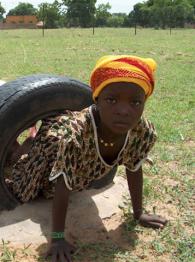
About the Project
This project is one of the 2010 WISE Awards finalists.
The Bilingual Education Continuum is a three-level program designed and implemented by the Swiss NGO Oeuvre Suisse d’Entraide Ouvrière, in partnership with the Burkinabe education ministries. The program’s goals are to help find solutions to education problems in a multilingual setting; improve the internal efficiency of the Burkinabè educational system by reducing or eliminating repetition and exclusion; significantly improve the external efficiency of education by grounding it in a cultural and local development context; reduce the cost of education by shortening the length of schooling and improving efficiency; and provide democratic access to preschool education.
Context and Issue
The difficulties faced by children in Burkina Faso are not only educational, but also socio-cultural and financial. The education system in Burkina Faso is facing several issues that stem from the mismatch between the curriculum content and the realities of the job market worsened by the use of French as the medium of instruction, a language that most school-age children do not master. The exclusive use of French as the medium of instruction resulted in a high number of repeaters of about 14.5% in the school year of 2004–2005 and a high rate of dropout with roughly 6.5% of students in the same year very often in the early years of schooling.
Solution and Impact
The program’s goals are to help find solutions to education problems in a multilingual setting; improve the internal efficiency of the Burkinabè educational system by reducing or eliminating repetition and exclusion; significantly improve the external efficiency of education by grounding it in a cultural and local development context; reduce the cost of education by shortening the length of schooling and improving efficiency; and provide democratic access to preschool education.
Its 27 Educational Awakening Spaces (called 3Es) are attended by 1,865 children aged 3-6, 50.24 percent of them girls. The 109 Bilingual Primary Schools enable children aged 7-12 to complete primary school in five years instead of the usual six; they have 16,872 pupils, including 51.83 percent girls. The two Multilingual Specific Junior secondary schools, for pupils aged 13-16, have 803 pupils, 45.2 percent of them girls.
Graduates of the program work for the civil service and the private sector. Some are professionals in key sectors such as plumbing, electricity and mechanics, while others are model farmers. Many are pursuing further education.


